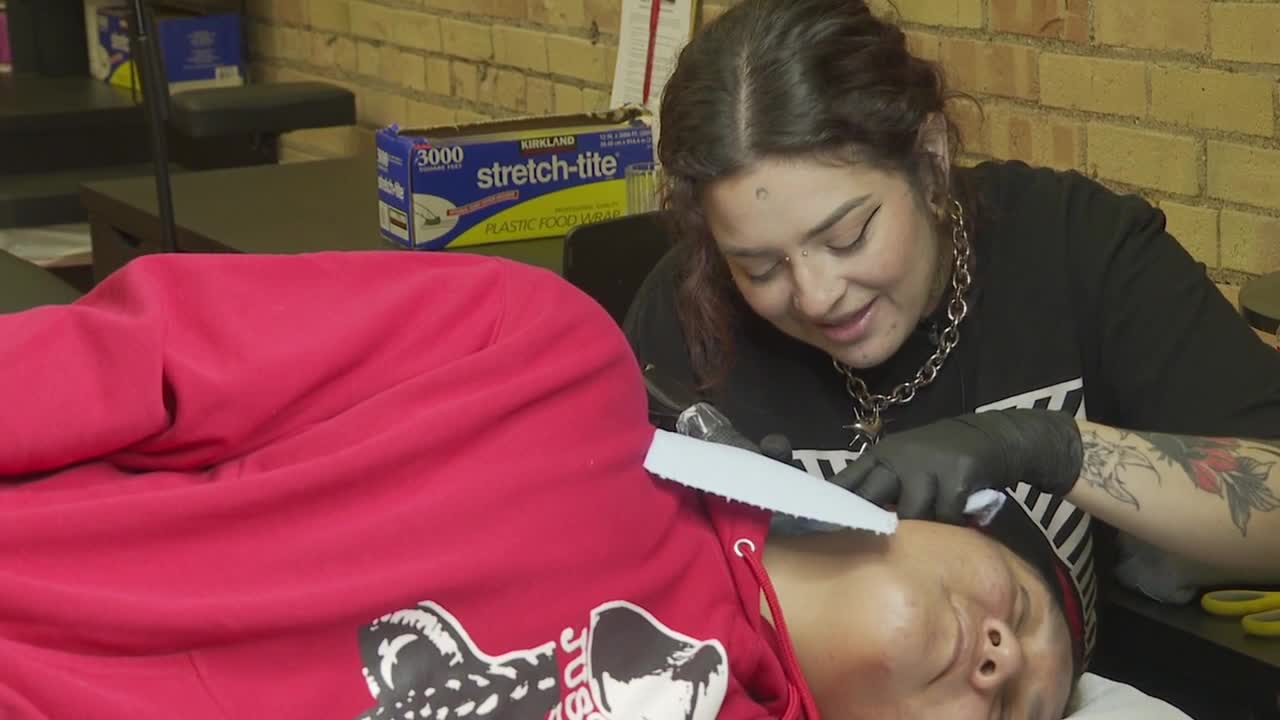SALT LAKE CITY — A Salt Lake City tattoo parlor is using art to bring attention to a crisis of Indigenous women and girls across the country who are missing or who have been murdered.
"Open your eyes, see what's actually going on around you," Sebastiana Sangre, a tattoo artist at the shop, said.
In light of American Native Heritage month, Eminent Ink Tattoos will host a fundraising event from Nov. 21-23, offering pan-indigenous symbol tattoos to raise awareness and money for the National Indigenous Women's Resource Center.
Sangre, who has Indigenous roots and is a mother of two daughters, said the issue hits close to home. "I'm a mother to two indigenous daughters. If anything were to happen to them, I would have to work so hard to get them on the news, to have somebody hear their story, to even get justice," Sangre said.
The Urban Indian Health Institute found more than 5,700 cases of missing and murdered Indigenous women and girls were reported in 2016, but only 116 of those reports were logged in the U.S. Department of Justice's federal missing persons database.
Salt Lake City ranks among the top 10 cities with the highest number of these cases, according to the institute's studies.
Rep. Angela Romero, the first Native American elected to the Utah Legislature, said the problem extends beyond rural areas and reservations. "When we talk about murdered and missing indigenous relatives, a lot of times people are thinking small-town Utah. They're thinking the reservation, but most Native Americans live in urban settings," Romero said. "It's happening in our community, people are going missing."
The Urban Indian Health Institute identified 506 unique cases of missing and murdered American Indian and Alaska Native women and girls across 71 cities. Of those cases, 128 were missing persons, 280 were murders, and 98 had unknown status.
For Sangre, tattooing represents more than art; it's a connection to cultural history. "Throughout all cultures around the world, it's in all of our history," Sangre said.
The fundraising event, at 256 E. 100 South in Salt Lake City, will run from noon to 6 p.m. each day, with artists tattooing pan-indigenous symbols available to anyone who wants to drop in.
"We want everybody to be able to wear these symbols and create a conversation," Sangre said.




